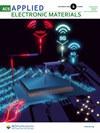Gastrointestinal problems in a valproic acid-induced rat model of autism: From maternal intestinal health to offspring intestinal function
IF 4.3
3区 材料科学
Q1 ENGINEERING, ELECTRICAL & ELECTRONIC
引用次数: 0
Abstract
BACKGROUND Autism spectrum disorder (ASD) is a developmental disorder characterized by social deficits and repetitive behavior. Gastrointestinal (GI) problems, such as constipation, diarrhea, and inflammatory bowel disease, commonly occur in patients with ASD. Previously, GI problems of ASD patients were attributed to intestinal inflammation and vertical mother-to-infant microbiome transmission. AIM To explore whether GI problems in ASD are related to maternal intestinal inflammation and gut microbiota abnormalities. METHODS An ASD rat model was developed using valproic acid (VPA). Enzyme-linked immunosorbent assay and fecal 16S rRNA sequencing were used to test GI changes. RESULTS VPA exposure during pregnancy led to pathological maternal intestinal changes, resulting in alterations in maternal gut microbiota. Additionally, the levels of inflammatory factors also increased. Moreover, prenatal exposure to VPA resulted in impaired duodenal motility in the offspring as well as increased levels of inflammatory factors. CONCLUSION GI problems in ASD may be associated with maternal intestinal inflammation and microbiota abnormality. Future research is required to find more evidence on the etiology and treatment of GI problems in ASD.丙戊酸诱导的自闭症大鼠模型中的肠胃问题:从母体肠道健康到后代肠道功能
背景自闭症谱系障碍(ASD)是一种以社交障碍和重复行为为特征的发育障碍。自闭症谱系障碍患者通常会出现胃肠道(GI)问题,如便秘、腹泻和炎症性肠病。以前,ASD 患者的胃肠道问题被归咎于肠道炎症和母婴微生物群垂直传播。目的 探讨 ASD 患者的消化道问题是否与母体肠道炎症和肠道微生物群异常有关。方法 使用丙戊酸(VPA)建立 ASD 大鼠模型。使用酶联免疫吸附试验和粪便 16S rRNA 测序来检测肠道变化。结果 妊娠期间接触 VPA 会导致母体肠道病理变化,导致母体肠道微生物群改变。此外,炎症因子的水平也有所增加。此外,产前暴露于 VPA 会导致后代十二指肠蠕动受损以及炎症因子水平升高。结论 ASD 的消化道问题可能与母体肠道炎症和微生物群异常有关。未来的研究需要找到更多关于 ASD 消化道问题的病因和治疗方法的证据。
本文章由计算机程序翻译,如有差异,请以英文原文为准。
求助全文
约1分钟内获得全文
求助全文

 求助内容:
求助内容: 应助结果提醒方式:
应助结果提醒方式:


